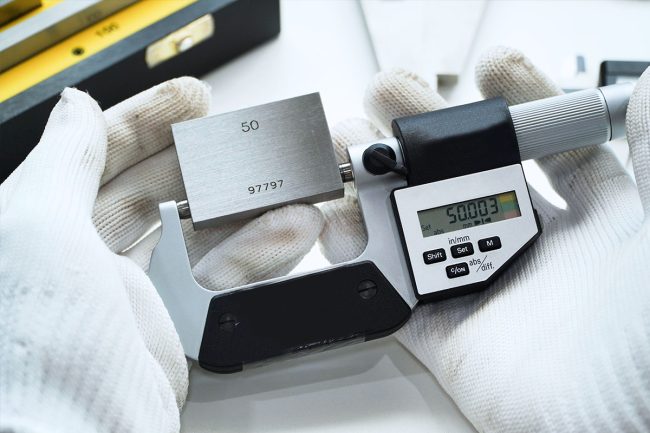Quality Assurance Solutions
- RusselSmith
- Quality Assurance Solutions
Total Quality Assurance
Our quality assurance expertise transforms compliance requirements into operational advantages. Through proven quality management methodologies, we help organizations build and sustain systems that consistently deliver excellence. We offer a complete suite of services including QA/QC inspections, failure analysis, vessel recertifications, and calibration services – all designed to help you maintain the highest standards of operational safety and reliability while meeting regulatory requirements.

SOLUTION OVERVIEW
Our Quality Assurance (QA) and Quality Control (QC) services ensure that all project materials, processes, and outcomes meet rigorous industry standards and customer specifications. RusselSmith’s QA/QC inspection services include:
- Material and Component Verification: We inspect raw materials, parts, and components to confirm compliance with client specifications and industry standards, ensuring high-quality and reliable outcomes for every project. (Positive Material Identification- PMI)
- Dimensional and Visual Inspections: Our inspectors use calibrated tools to verify that equipment and installations meet precise dimensional standards, essential for operational reliability in high-stakes environments.
- Welding and Coating Inspections: Using advanced NDT and coating inspection methods, we verify the integrity of welds and protective coatings on pipelines, pressure vessels, and structural components, ensuring compliance with industry standards such as ASME, ISO, ASTM, NACE, etc.
Failure Analysis and Root Cause Analysis (RCA)
Our Failure Analysis and Root Cause Analysis (RCA) services are designed to identify the underlying causes of equipment and system failures. This is essential for improving asset reliability, reducing maintenance costs, and enhancing safety:
- Failure Investigation: This includes collecting data from failed components, assessing operational conditions, and conducting in-depth examinations to identify physical causes of failure, such as corrosion, fatigue, or material defects.
- Root Cause Analysis (RCA): Using systematic methods, including the Five Whys and Fault Tree Analysis (FTA) to trace failures to their root causes, helping clients implement corrective actions and avoid recurrence.
- Comprehensive Reporting: Detailed reports with actionable recommendations, aiding clients in enhancing asset resilience and safety.
- Value-for-money Audits: Validating volume, quantity and quality of work done by IOCs (auditing reported project spend versus actual work done)
Pressure Vessel Recertifications – API 510 Inspections
- In-Service and Out-of-Service Inspections: We carry out thorough visual and ultrasonic inspections to assess pressure vessel integrity, corrosion levels, and wall thickness, identifying any areas of concern.
- Calibration Services: Tank calibration and equipment calibration.
- Pressure Testing: Hydrostatic and pneumatic testing services to verify that pressure vessels can safely contain operating pressures without failure.
Vessel Recertifications – BV, DNV, Lloyd’s, ABS etc.
We carry out inspection and recertification services in compliance with leading classification societies, to ensure vessels meet regulatory and operational standards.
- Structural and Mechanical Inspections: Inspections of hulls, decks, and critical machinery, using tests like UT Measurements and visual inspections
- Detailed Recertification Documentation: Full inspection reports and recertification documentation to satisfy classification society requirements.
- HSE Inspections: noise survey
- Emergency Alert systems installation- for vessels and FPSOs
- HSE Audits and Risk Assessments: We perform comprehensive HSE audits and risk assessments, identifying potential hazards and recommending control measures to mitigate risks across operations.
- Emergency Response Planning: develop and implement effective emergency response plans, including drills and safety protocols to manage crises and ensure rapid, effective action.